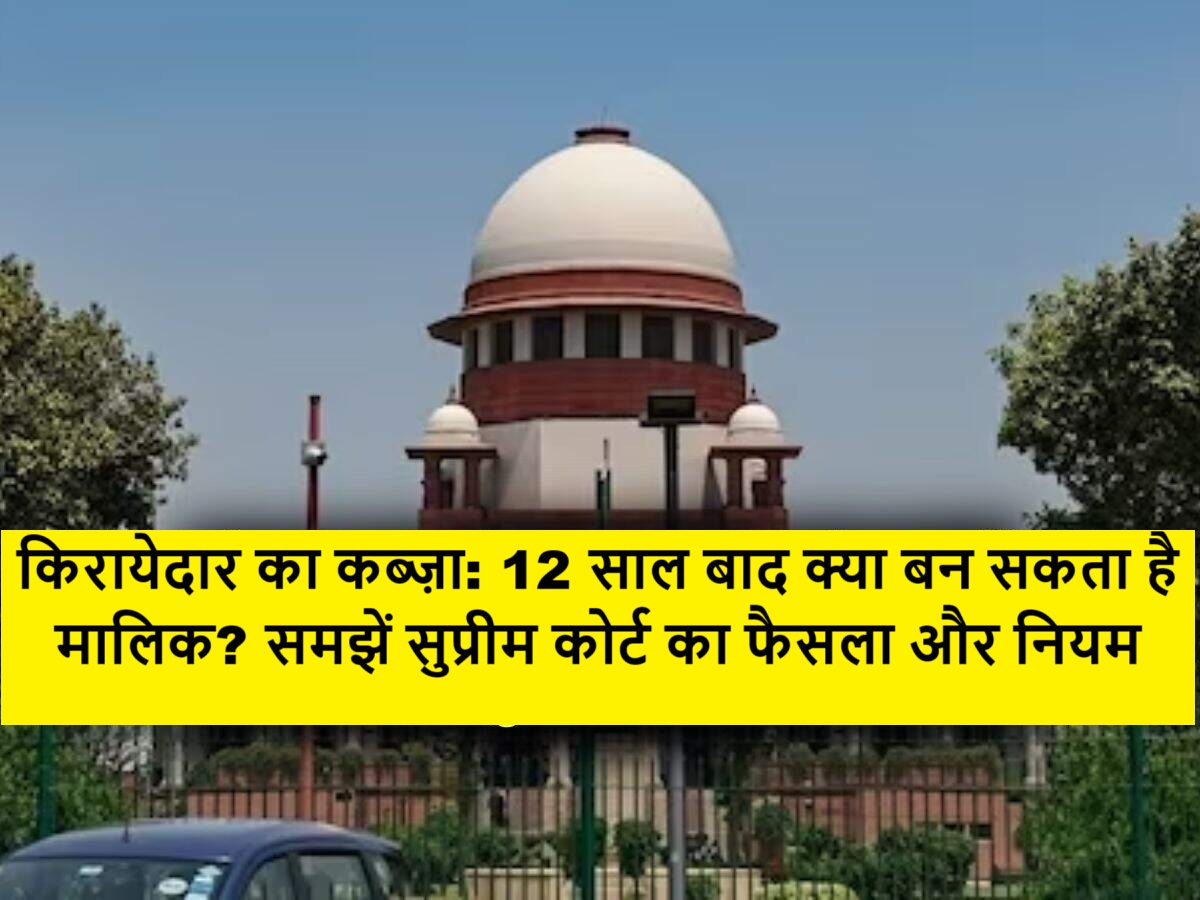News India Live, Digital Desk: (Supreme Court) Many landlords are relaxed by renting their property and do not take care of it for a long time. But, doing so can be heavy for you. The Supreme Court has recently given an important verdict, in which it has been clarified in which circumstances and after how many years a tenant or possession person can claim ownership of the property.
Therefore, it is very important for property owners to understand these rules. Let us know what conditions the court has given.
Supreme Court told these conditions
This decision has come in a case related to property and it applies to private (private) property, Not on government land or property,
-
12 years Rule: The Supreme Court has said that if a person on one’s personal land or property 12 consecutive years Till the time it remains, and during this time The real owner did not object to her possession or did not take any legal action to remove herIn such a situation, the person occupying the person can claim ownership of that property. In the language of law “Adverse possession” (Adverse Possession) They say.
When can a tenant claim ownership?
There are many laws regarding property ownership in India. The rule of “adverse possession” is also one of them. This rule says that if a tenant (or any person) stays on a property for 12 consecutive years, then he claims ownership Can doBut for this something Hard conditions Have to complete:
What are the conditions of the claim of ownership?
-
Continuous possession: On that person’s property 12 consecutive years or more Must be captured. During this time there should not be any obstruction in possession, that is, it should not happen that he has left the property in the middle.
-
No restriction from the owner: The most important condition is that during these 12 years The real property owner has never expressed any legal objection to that possessionNeither have tried to remove it. The silence or inaction of the owner is considered important here.
-
evidence: To prove his possession to a person claiming Firm proof Will have to pay, such as property tax receipts, electricity/water bills (which are named after it), witness or other documents. It is not enough to be a tenant just, he has to prove that his possession was (unfavorable) against the rights of the real owner.
Some legal sections related to property disputes
Disputes between the tenant and the landlord are common. Some legal sections are used in such cases:
-
Section 406 (IPC): When a person tries to capture your property by misusing your trust (Amanat).
-
Section 467 (IPC): When someone use fake or fake documents to capture land or property. This is a serious crime.
-
Section 420 (IPC): Many cases of fraud related to property, such as false promises and grabbing the property come under this section.
What is adverse possession law?
This law is of the time of the British. Its basic principle is that if the real owner of the land does not take care of his property for a long time (12 years for private property in India), allows someone else to be occupied and does not take any action to remove it, the law can recognize the person’s rights who is using and overseeing the property. But, as stated, the claimers have to fulfill several conditions and give strong evidence.
The post tenant possession: What can be the owner after 12 years? Understand the decision and rules of the Supreme Court first appeared on News India Live | Breaking India News, The Indian Headline, India Express News, Fast India News.
